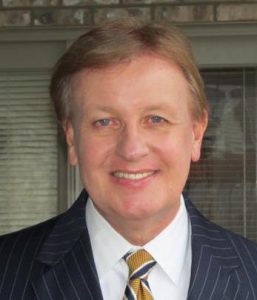Hillary’s Health, Biggest Problem?
 Hillary Clinton has been sick, as the media has reported. We’ve heard about her pneumonia, seen her coughing at the podium and struggling to stay afoot as she was escorted to her car. The strenuous pace of campaigning for President of the United States would surely take its toll on any human body.
Hillary Clinton has been sick, as the media has reported. We’ve heard about her pneumonia, seen her coughing at the podium and struggling to stay afoot as she was escorted to her car. The strenuous pace of campaigning for President of the United States would surely take its toll on any human body.
Clinton has been accused of hiding her illness. Secrecy has been a pattern with her when it comes to emails, Whitewater, Secretary of State activities, the Clinton Foundation, mega-dollar speaking fees from none other than Wall Street and a sloughing off about the lifestyle shenanigans of Bill. She has denied being the woman in Tammy Wynette’s song titled “Stand by Your Man,” but she did do a good job of standing by Bill during some tough years of adversity. Bill is now standing with her and what a better place for him to have eight more years to solidify millions and millions more in contributions to the Clinton Foundation. Even if money was refused from Middle Eastern powerbrokers during Hillary’s Presidency, continued relationships will be built for donations for years to come.
 Maybe this is part of Hillary’s health condition? Sometimes there is simply too much on the plate. Possibly, there have been too many powerful Saudis calling on the telephone with political suggestions. Too much loss of sleep wondering where Bill is and what he is doing. Maybe there have been too many late hours deleting emails and trying to cover up massive contributions to the Clinton Foundation. No one knows for sure what is going on with Hillary Clinton’s health.
Maybe this is part of Hillary’s health condition? Sometimes there is simply too much on the plate. Possibly, there have been too many powerful Saudis calling on the telephone with political suggestions. Too much loss of sleep wondering where Bill is and what he is doing. Maybe there have been too many late hours deleting emails and trying to cover up massive contributions to the Clinton Foundation. No one knows for sure what is going on with Hillary Clinton’s health.
She looks tired. Her schedule is crazy. She is probably just worn down. It happens. This can happen to anybody. Anybody can get sick. Trump may turn up with the flu. They just need to say, “I’m sick and I’m going to bed. I’ll be back out when I’m feeling better.”
All of us battle physical ailments. We are all one heartbeat from death. Flu, viruses, sore throats, happen to us all. Franklin D. Roosevelt’s paralytic problems began in 1921 when he was 39 years old. Roosevelt was diagnosed with poliomyelitis although years later there were other diagnoses. He was left with permanent paralysis from the waist down, and was unable to stand or walk without support. He laboriously taught himself to walk short distances while wearing iron braces on his hips and legs. He supported himself with a cane , and he was careful never to be seen using his wheelchair in public. His troubles with illness were well known before and during his Presidency and became a major part of his image, but the extent of his illness and physical condition were kept from public view. In other words, he wouldn’t call CNN, Fox or NBC for a full video analysis and report of his condition.
Of course, it was a different day. People judged Roosevelt by who he was and what he could do in spite of severe physical limitations. They believed him. They had faith that he was the person to lead this country. He was a proven leader.
Americans aren’t that worried about Hillary’s pneumonia or Trump’s tax returns. If one of them ended up on a walker or in a wheelchair it would be a moot point. Americans want somebody to have faith in and believe. Right now, that’s our biggest problem.
By Glenn Mollette
Glenn Mollette is a syndicated columnist and author of eleven books.
He is read in all fifty states.
Why This Democrat Wants a Strong Republican Party
 I’ve been a Democrat all my life. But that doesn’t mean I favor a weak Republican Party. Indeed, just the opposite. Before my Democratic friends drum me out of the party, let me explain why.
I’ve been a Democrat all my life. But that doesn’t mean I favor a weak Republican Party. Indeed, just the opposite. Before my Democratic friends drum me out of the party, let me explain why.
Our nation is stronger and our representative democracy healthier when we have two strong parties. A single political party that’s able to dominate public policy-making undermines the give-and-take that’s crucial to effective policy and leaves us weaker as a country.
Why is this? For starters, none of us, and neither political party, has a monopoly on wisdom. Moreover, the legitimacy of the political system rests on its ability to give voice to the multitude of concerns and attitudes held by the American people. It’s important they all have a political party to turn to.
I don’t want to get into the split between backers of Donald Trump and the traditional Republican leadership — that’s for the GOP to sort out. But there’s no doubt that the Republican Party has reached a crossroads.
If Trump wins the presidency, he’ll be the chief actor in determining the future of his party and what it stands for. If he loses, the GOP will more than likely move back toward its more traditional views.
I suppose I’m showing my biases here, but I believe that a robust Republican Party will strengthen its willingness to improve and broaden the policy debate and move it away from steps to impede it. This would be a GOP that advocates for limited government, wants to reform our unwieldy tax code, and is determined to remain fiscally responsible so that deficits don’t explode. It would tackle our healthcare system by reforming it using market mechanisms. It would push to devolve power away from Washington, giving states more control over such basic responsibilities as highways, welfare, and education.
Each of these issues has been at the center of the national agenda for many years, suggesting their difficulty. We need proposals from both sides that are realistic, coherent, and based on numbers that add up. We need parties that are at the top of their game, generating solutions to the issues we confront and prepared to negotiate to move us beyond our current gridlock.
This can best happen when a healthy Republican Party is competing with a healthy Democratic Party. At the moment, that’s not what we’re seeing.
By Lee Hamilton
Lee Hamilton is a Senior Advisor for the Indiana University Center on Representative Government; a Distinguished Scholar, IU School of Global and International Studies; and a Professor of Practice, IU School of Public and Environmental Affairs. He was a member of the U.S. House of Representatives for 34 years.

Electrify the Economy

Efforts to significantly reduce carbon pollution between now and 2050 are vital and feasible. Electrifying transportation and the heating of residential and commercial buildings will help reduce carbon pollution because the electric grid is getting cleaner each year. This creates a huge opportunity for rural economic development.
Most renewable energy is generated in wide open spaces outside of dense urban centers. New job opportunities come with every new megawatt of wind or solar built in rural areas. In the wind industry, new jobs mean solid middle class incomes, with an average salary of $46,077. Renewable energy also increases the tax base and provides direct payments to landowners.
Moreover, opportunities for clean energy sector growth are significant. U.S. consumers spent over $200 billion on gasoline in 2015. When you consider that, in the context of moving transportation toward electric fuel, this translates into a $200 billion rural economic development opportunity.
In order to reach this level of clean electricity production, we will need wind and solar at all scales. We need public policy to drive forward the boom in home-, farm- and business-scale solar. We also need models that better support community-scale renewable projects.
And, we must continue the transformation of utility-scale electricity production from fossil fuels to renewables. This will mean additional utility-scale wind farms and solar projects, and the transmission infrastructure to carry these renewables from rural areas to urban markets.
By Brian Depew, Center for Rural Affairs
Established in 1973, the Center for Rural Affairs is a private, non-profit organization working to strengthen small businesses, family farms and ranches, and rural communities through action oriented programs addressing social, economic, and environmental issues.


